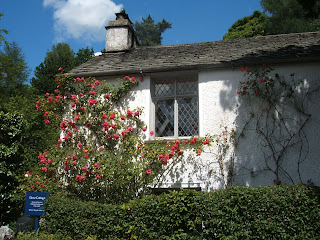

Carnival of the Criminal Minds was a brainwave of Barbara Fister, and I’m taking part immediately after Sandra Ruttan, whom I’ve had the pleasure of meeting at crime conventions both in the UK and in the States. Carnivals are, in my mind, associated with sunshine and summer - perhaps, given the English climate, this is the triumph of hope over experience. All the same, I like carnivals a lot. I have fond memories of the Northwich Carnival of my childhood. In 1963, it was opened by the Beatles, just at the time they hit the top of the charts and were fulfilling a few pre-fame contractual obligations. At the age of seven or eight, I was lucky not to be crushed to death by the horde of teenage girls screaming at their four heroes in purple suits. More recently, a trip to North Wales led to a close encounter with Llandudno’s May bank holiday carnival – an exuberant event (see the photos) made all the better by very good weather.
But come rain or shine, there are plenty of blogs to keep me amused, entertained and informed. Each of those listed on my blogroll will repay a visit; today, I’ll select some highlights, but those I don’t mention are still very worthwhile. One of the first blogs I came across, and consistently one of best, is: Ed Gorman’s blog. Ed is not only an accomplished author of novels and short stories, but also founder of Mystery Scene magazine, savvy commentator, and great and generous supporter of other writers. I’ve never met him, but his work gives a very good flavour of a man who has led a fascinating, not always easy life and who always speaks with real authority – and, just as important, humanity.
Karen Meek was keen on Eurocrime before it became so enormously fashionable and her love of the genre shines through her blog: Eurocrime. Very knowledgeable, she doesn’t stick to just writing about the big names, and that’s one of the elements of her blog that makes it so interesting. Eric Mayer’s Byzantine blog is very different, yet equally appealing. With his wife Mary Reed, he is responsible for a refreshingly original set of mysteries featuring John the Eunuch; their website contains countless good things and his blog posts are full of insight.
Last September, in Yorkshire, I met a group of American crime enthusiasts; and two of them, Lourdes Fernandes and Roberta Rood, turned out to be notable bloggers. At that time, I hadn’t started this blog, but reading their posts was one of a number of influences which spurred me on to create ‘Do you write under your own name?’ Lourdes’ Lost in Books and Roberta’s Books to the Ceiling. Someone I haven’t met is the French Golden Age enthusiast Xavier Lechard. He doesn’t post very often on his blog At the Villa Rose (the name comes from the title of a book by A.E.W. Mason) but his comments about traditional mysteries are always intelligent, well-informed and stimulating.
For information about books of the past, you can’t do much better than consult Steve Lewis’s wonderful resource, Mystery*File. Time after time he comes up with material that simply isn’t available elsewhere. Indispensable for the researcher. With more of a focus on the contemporary, The Rap Sheet must be, I imagine, one of the most frequently visited of all crime blogs, and the reason is because the content is consistently varied and stimulating. Jeff Kingston Pierce presides, and other contributors include the British critic Ali Karim.
No fewer than five blogs by female British bloggers who do not focus exclusively on crime are among my must-views. Maxine Clarke is a scientist whose acute intelligence is evident in all her posts, whether on scientific topics or crime fiction:Petrona. It’s a Crime is equally thoughtful. I also consult the views of an author whose reviews are as persuasive and insightful as you would expect from a former professor of English: Harriet Devine.. Elaine Simpson-Long’s Random Jottings of a Book and Opera Lover are always worth reading (even thought I make no claims to be an opera buff) and Juliet Doyle’s Musings from a Muddy Island, which touch less often on crime than the others, contain not only marvellous photographs but also a portrayal of life in a small island community that I find quite fascinating.
I could go on – and let’s face it, all lawyers are tempted to go on at length. My blogroll lists a good many other very enjoyable blogs. But the new novel calls. Soon it will be time for the carnival to move on. Next stop is Australia, and Kerrie’s entertaining blog Mysteries in Paradise.




























